
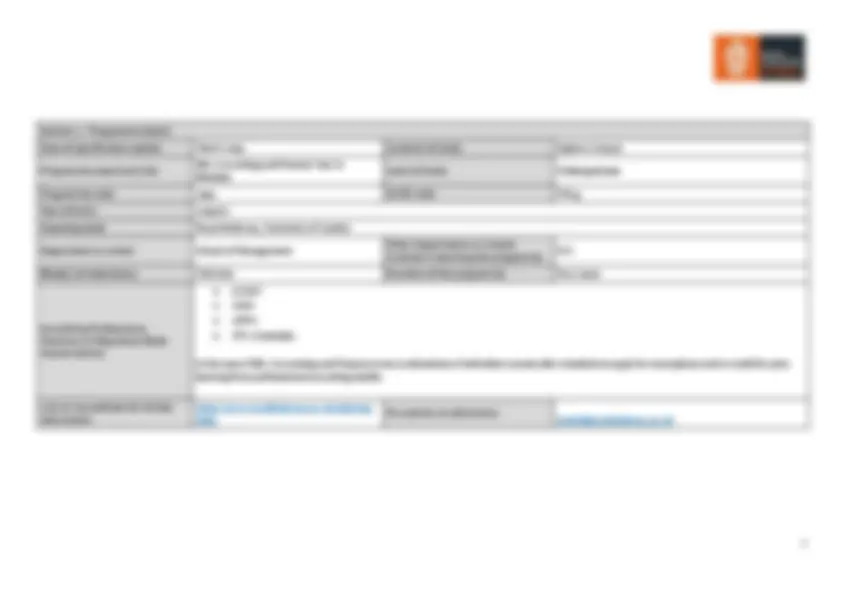
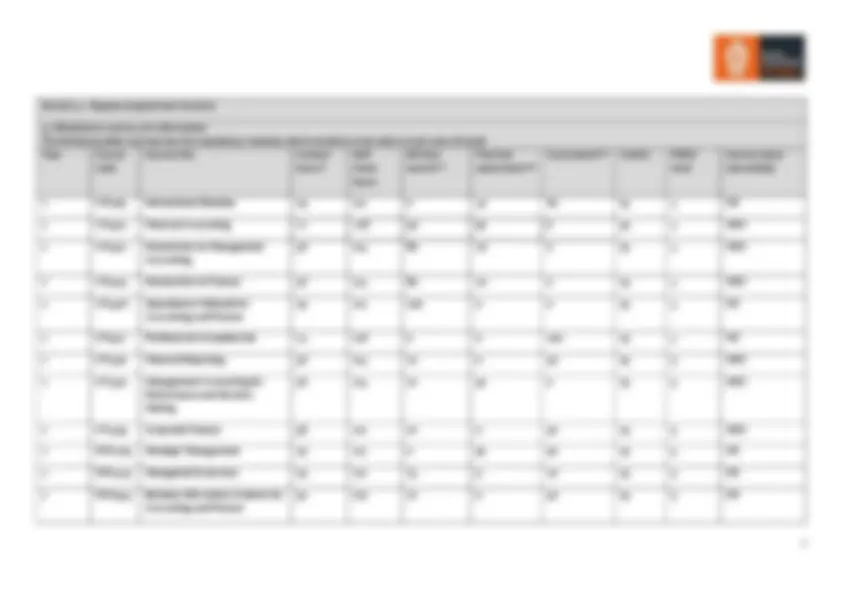
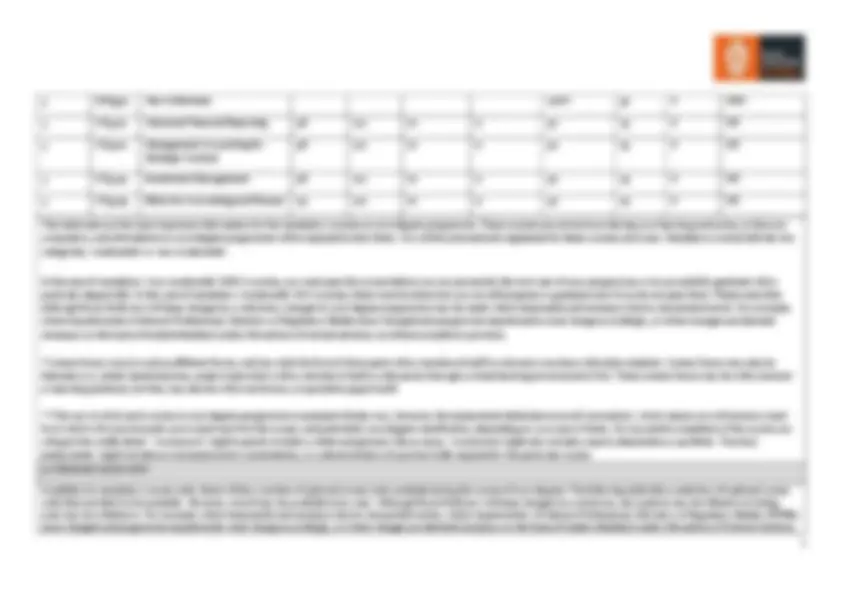
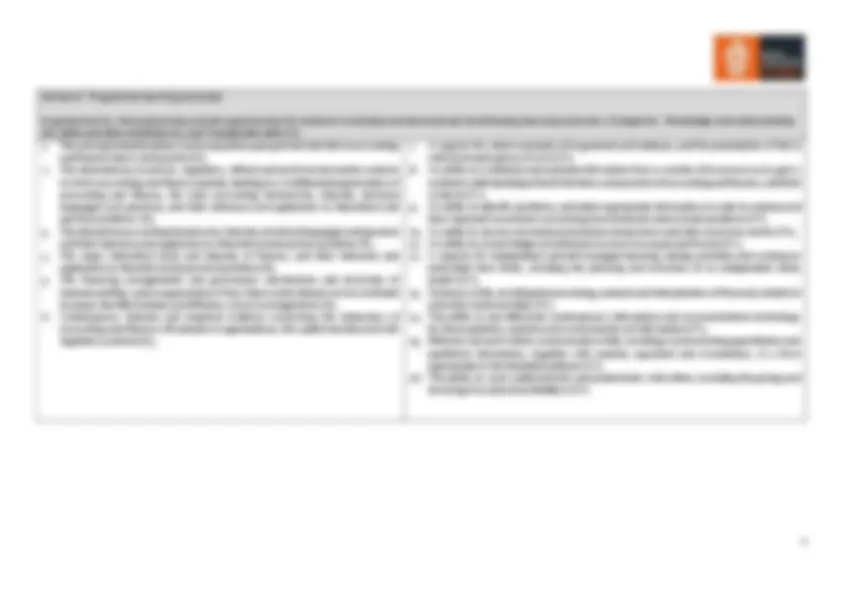
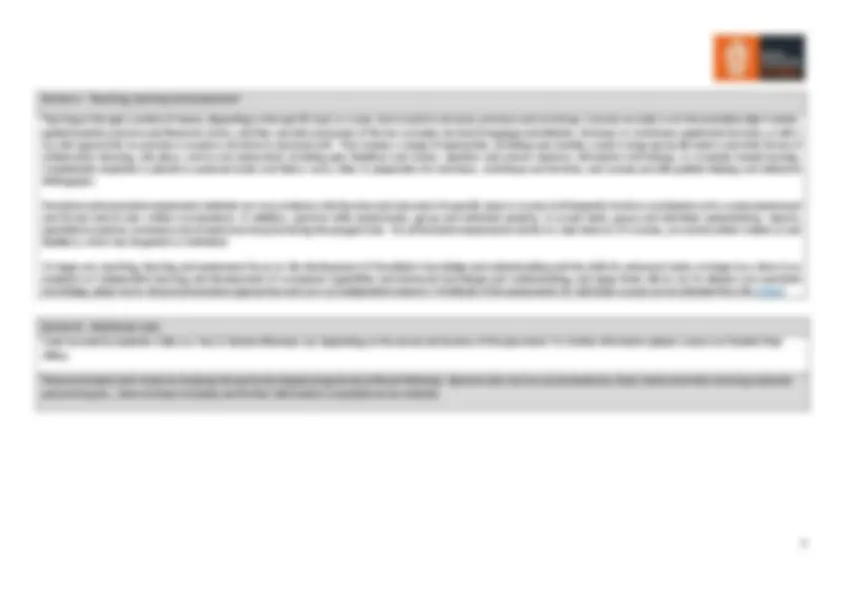
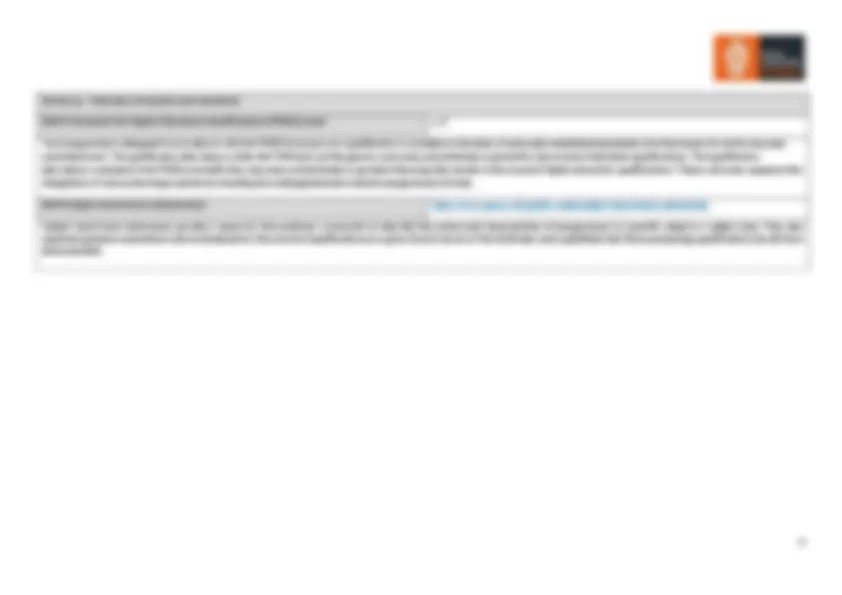


Study with the several resources on Docsity

Earn points by helping other students or get them with a premium plan


Prepare for your exams
Study with the several resources on Docsity

Earn points to download
Earn points by helping other students or get them with a premium plan
Community
Ask the community for help and clear up your study doubts
Discover the best universities in your country according to Docsity users
Free resources
Download our free guides on studying techniques, anxiety management strategies, and thesis advice from Docsity tutors
Information about the BSc Accounting and Finance Year in Business degree programme offered at Royal Holloway, University of London. The programme is delivered in four stages, with the first, second, and fourth stages consisting of one year of full-time study and the third stage being a work experience placement. The degree covers accounting and finance topics with a focus on developing related skills and an international and ethical perspective. Students attend academic and professional skills sessions and are required to take mandatory and optional courses.
What you will learn
Typology: Study notes
1 / 12

This page cannot be seen from the preview
Don't miss anything!







Section 1 – Introduction to your programme
This programme specification is a formal document, which provides a summary of the main features of your programme and the learning outcomes that you might reasonably be expected to achieve and demonstrate if you take full advantage of the learning opportunities that are provided. Further information is contained in the College prospectus, and in various handbooks, all of which you will be able to access online. Alternatively, further information on the College’s academic regulations and polices can be found here. Further information on the College’s Admissions Policy can be found here.
Your degree programme in BSc Accounting and Finance Year in Business is delivered in four stages, with stages one, two and four comprising of one year of full-time study during which you must follow courses to the value of four units (one unit is equivalent to 30 national credits), whilst stage three consists of work experience of between nine and twelve months, either in business or for an organisation in the public or not-for-profit sectors, for which you take one 30 credit unit.
Accounting is a broad-based academic subject and a field of study with practical implications, offering the chance to develop related personal and technical skills. The study of accounting involves the consideration of both conceptual and applied aspects of the subject. The degree structure is progressive, allowing you to move from foundation courses to more critical or specialist courses, while maintaining a flexible set of options. A wide range of courses is offered, including those drawn more widely from the School of Management, to ensure that students appreciate the diverse, interdisciplinary nature of accounting, and also gain or reinforce a range of conceptual, technical, intra and interpersonal skills. The programme embeds international and ethical considerations widely, with optional modules grounding the study of accounting and finance in a broader understanding of the perspectives that inform accounting theory and practice.
Stage one provides a foundation for advanced and independent study through establishing a platform of essential knowledge and skills. This platform includes the core cognate areas of accounting (financial accounting and management accounting) and finance together with quantitative techniques, considerations relevant to international business, and the economic, ethical and social environments in which the accountant, the accounting profession and organisations operate. You are required to attend non-credit bearing academic and professional skills sessions, which focus on key study skills which are critical to success at undergraduate level, together with core knowledge of the accounting profession and professional norms. This stage also provides a foundation for the later stages by introducing the main current technical language and practices of accounting in the core areas of financial accounting, management accounting and finance. You are also prepared for future professional careers in business through the study of professional competencies.
In stage two there is a greater emphasis on independent learning, and you build upon your foundation knowledge for the further study of the core accounting areas, including an introduction to some of the alternative technical languages and practices of accounting. In addition, you may choose options that extend their knowledge of accounting and finance theories and practices, or other mainstream areas of business and management.
In stage three (stage four for Year in Business students) you study, at an advanced level, the core areas of accounting and finance, and select specialist options which give the opportunity to develop particular skill sets, to deepen understanding of core accounting theories and practice, and to extend their knowledge of literature, theory and case evidence and
the associated practical implications for accounting and finance. On the degree programme with a year in business you undertake a continuous period of work experience, before stage three studies, during which you are provided with opportunities for integration of theory and practice.
While Royal Holloway keeps all the information made available under review, programmes and the availability of individual course units, especially optional course units are necessarily subject to change at any time, and you are therefore advised to seek confirmation of any factors which might affect your decision to follow a specific programme. In turn, Royal Holloway will inform you as soon as is practicable of any significant changes which might affect your studies.
The following is brief description for some of the most important terminology for understanding the content of this document:
Degree programme – Also referred to as ‘degree course’ or simply ‘course’, these terms refer to the qualification you will be awarded upon successful completion of your studies. Course unit – Also referred to as ‘module’, this refers to the individual units you will study each year to complete your degree programme. Undergraduate degrees at Royal Holloway comprise four full units, or a combination of full and half units, to the value of 120 credits per year. On some degree programmes a certain number of optional course units must be passed for a particular degree title.
Section 3 – Degree programme structure
3.1 Mandatory course unit information The following table summarises the mandatory modules which students must take in each year of study
Year Course code
Course title Contact hours*
Self- study hours
**Written exams****
**Practical assessment****
Coursework Credits FHEQ level**
Course status (see below)
1 AF1205 International Business 29 121 0 40 60 15 4 MC
1 AF1401 Financial Accounting 72 228 50 50 0 30 4 MNC
1 AF1402 Introduction to Management Accounting
1 AF1403 Introduction to Finance 36 114 80 20 0 15 4 MNC
1 AF1406 Quantitative Methods for Accounting and Finance
1 AF1407 Professional Competencies 24 126 0 0 100 15 4 MC
2 AF2401 Financial Reporting 36 114 70 0 30 15 5 MNC
2 AF2402 Management Accounting for Performance and Decision Making
2 AF2403 Corporate Finance 38 112 70 0 30 15 5 MNC
2 MN2205 Strategic Management 29 121 0 50 50 15 5 MC
2 MN2425 Managerial Economics 29 121 75 5 20 15 5 MC
2 MN2545 Business Information Systems for Accounting and Finance
This table sets out the most important information for the mandatory courses on your degree programme. These courses are central to achieving your learning outcomes, so they are compulsory, and all students on your degree programme will be required to take them. You will be automatically registered for these courses each year. Mandatory courses fall into two
categories; ‘condonable’ or ‘non-condonable’.
In the case of mandatory ‘non-condonable’ (MNC) courses, you must pass the course before you can proceed to the next year of your programme, or to successfully graduate with a particular degree title. In the case of mandatory ‘condonable’ (MC) courses, these must be taken but you can still progress or graduate even if you do not pass them. Please note that although Royal Holloway will keep changes to a minimum, changes to your degree programme may be made where reasonable and necessary due to unexpected events. For example; where requirements of relevant Professional, Statutory or Regulatory Bodies have changed and programme requirements must change accordingly, or where changes are deemed
necessary on the basis of student feedback and/or the advice of external advisors, to enhance academic provision.
*Contact hours come in various different forms, and may take the form of time spent with a member of staff in a lecture or seminar with other students. Contact hours may also be laboratory or, studio-based sessions, project supervision with a member of staff, or discussion through a virtual learning environment (VLE). These contact hours may be with a lecturer or teaching assistant, but they may also be with a technician, or specialist support staff.
**The way in which each course on your degree programme is assessed will also vary, however, the assessments listed above are all ‘summative’, which means you will receive a mark for it which will count towards your overall mark for the course, and potentially your degree classification, depending on your year of study. On successful completion of the course you will gain the credits listed. ‘Coursework’ might typically include a written assignment, like an essay. Coursework might also include a report, dissertation or portfolio. ‘Practical assessments’ might include an oral assessment or presentation, or a demonstration of practical skills required for the particular course.
3.2 Optional course units
In addition to mandatory course units, there will be a number of optional course units available during the course of your degree. The following table lists a selection of optional course units that are likely to be available. However, not all may be available every year. Although Royal Holloway will keep changes to a minimum, new options may be offered or existing ones may be withdrawn. For example; where reasonable and necessary due to unexpected events, where requirements of relevant Professional, Statutory or Regulatory Bodies (PSRBs) have changed and programme requirements must change accordingly, or where changes are deemed necessary on the basis of student feedback and/or the advice of External Advisors,
3 MN3511 Year in Business 100% 30 6 MNC
4 AF3401 Advanced Financial Reporting 38 112 70 0 30 15 6 MC
4 AF3402 Management Accounting for Strategic Analysis
4 AF3403 Investment Management 38 112 70 0 30 15 6 MC
4 AF3409 Ethics for Accounting and Finance 29 121 70 0 30 15 6 MC
Section 4 - Progressing through each year of your degree programme
For further information on the progression and award requirements for your degree, please refer to Royal Holloway’s Academic Regulations. As part of your degree programme you may also be required to complete a course to develop your academic writing skills. This course does not carry credit but passing it is a requirement to progress to the next year of study.
Year in Business - The third year of this degree programme will be spent on a work placement. You are supported by your academic department and the Royal Holloway Careers Service to find a suitable placement. However, Royal Holloway cannot guarantee that all students who are accepted onto this degree programme will secure a placement, and the ultimate responsibility lies with you. You will need to achieve an agreed level of academic performance to proceed onto, or remain on, a placement. On the BSc Accounting and Finance with a Year in Business you must take and pass the mandatory non-condonable courses in Years 1 and 2. This year forms an integral part of the degree programme and you will be asked to complete assessed work. The mark for this work will count towards the degree. You must pass the Year in Business course to qualify for the degree title “Year in Business”.
Section 5 – Educational aims of the programme
The aims of this programme are:
to provide an intellectually challenging and relevant education which will equip students with the analytical competence, knowledge base, critical capabilities, and personal and technical skills required for future roles in business, the public sector, and society and for further study and doctoral research; to combine academic and practical insights into the subject of accounting within an international and comparative context; to reflect the dynamic nature of the business world and specifically accounting in the international environment; to provide a learning environment informed by the research expertise of academic staff; to develop students’ lifelong learning skills, and instil and improve a broad range of transferable personal and technical skills; to provide for integration between theory and practice by a variety of means including, for example, work-based experience or placement, or input from external business-related visitors; to provide students with knowledge and understanding of accounting theory and practice sufficient to meet some of the accreditation requirements of the professional accounting bodies.
Section 6 - Programme learning outcomes
In general terms, the programmes provide opportunities for students to develop and demonstrate the following learning outcomes. ( _Categories – Knowledge and understanding (K), Skills and other attributes (S), and Transferable skills ())_*
Section 9 – Indicators of quality and standards
QAA Framework for Higher Education Qualifications (FHEQ) Level 4 - 6
Your programme is designed in accordance with the FHEQ to ensure your qualification is awarded on the basis of nationally established standards of achievement, for both outcomes and attainment. The qualification descriptors within the FHEQ set out the generic outcomes and attributes expected for the award of individual qualifications. The qualification descriptors contained in the FHEQ exemplify the outcomes and attributes expected of learning that results in the award of higher education qualifications. These outcomes represent the integration of various learning experiences resulting from designated and coherent programmes of study.
QAA Subject benchmark statement(s) http://www.qaa.ac.uk/quality-code/subject-benchmark-statements
Subject benchmark statements provide a means for the academic community to describe the nature and characteristics of programmes in a specific subject or subject area. They also represent general expectations about standards for the award of qualifications at a given level in terms of the attributes and capabilities that those possessing qualifications should have demonstrated.
Section 11 – Intermediate exit awards (where available)
You may be eligible for an intermediate exit award if you complete part of the programme as detailed in this document. Any additional criteria (e.g. mandatory course units, credit requirements) for intermediate awards is outlined in the sections below. Award Criteria Awarding body
Diploma in Higher Education (DipHE) Pass in 210 credits of which at least 90 must be at or above FHEQ Level 4 and at least 120 of which must be at or above FHEQ Level 5
Royal Holloway and Bedford New College
Certificate in Higher Education (CertHE) Pass in 120 credits of which at least 90 must be at or above FHEQ Level 4
Royal Holloway and Bedford New College
Section 10 – Further information
This specification provides a concise summary of the main features of the programme and the learning outcomes that a typical student might reasonably be expected to achieve and demonstrate when taking full advantage of the learning opportunities that are available. More detailed information on course units, including teaching and learning methods, and methods of assessment, can be found via the online Course Catalogue. The accuracy of the information contained in this document is reviewed regularly by the university, and may also be checked routinely by external agencies, such as the Quality Assurance Agency (QAA).
Your programme will be reviewed regularly, both by the university as part of its cyclical quality enhancement processes, and/or by your department or school, who may wish to make improvements to the curriculum, or in response to resource planning. As such, your programme may be revised during the course of your study at Royal Holloway. However, your department or school will take reasonable steps to consult with students via appropriate channels when considering changes. All continuing students will be routinely informed of any significant changes.